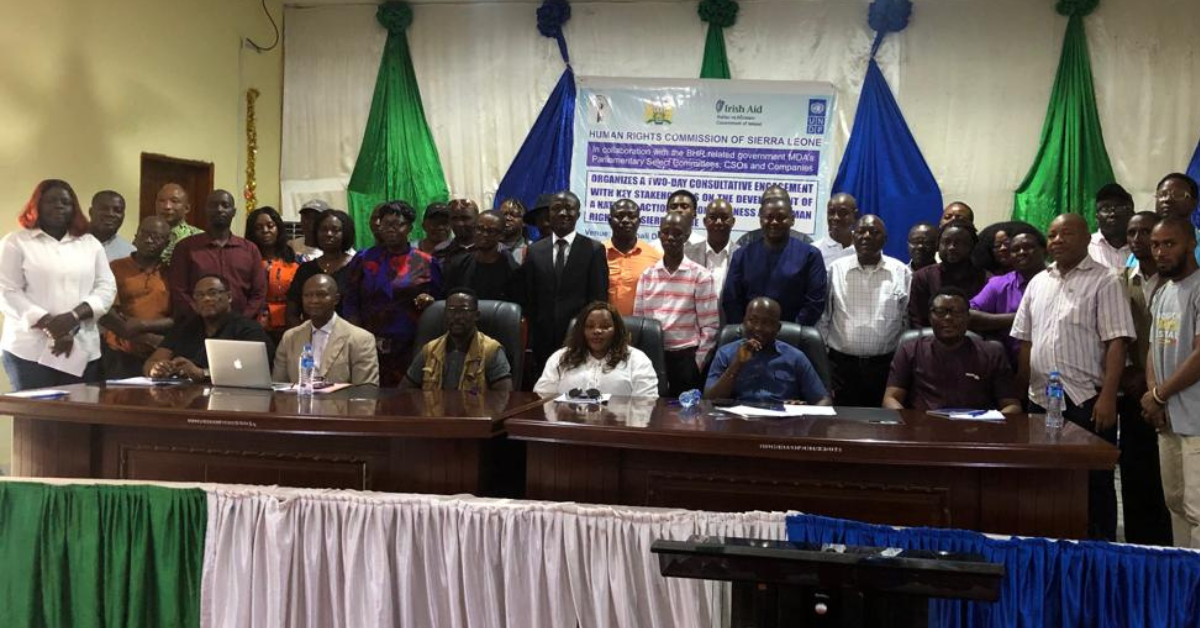The Human Rights Commission of Sierra Leone (HRCSL), with support from the United Nations Development Programme (UNDP) and Irish Aid, organized a two-day consultative workshop to advance the development of a National Action Plan (NAP) on Business and Human Rights.
The event, held on November 28 and 29, 2024, at the Bombali District Council Hall in Makeni, brought together 40 key stakeholders, including parliamentarians, ministries, departments, agencies (MDAs), civil society organizations (CSOs), and private sector representatives.
The consultation aimed to foster an inclusive and participatory process to address human rights concerns in the business sector. Stakeholders provided input on creating a comprehensive framework to guide the public and private sectors in aligning business practices with human rights standards.
HRCSL Chairperson, Mrs. Patricia Narsu Ndanema, highlighted the Commission’s expanded focus on monitoring business operations and their impact on human rights. While acknowledging businesses’ contributions to the economy, she expressed concern over practices that undermine human rights.
“We want to see businesses operate in line with human rights standards,” Ndanema said, emphasizing the Commission’s role as a facilitator in the state-led initiative.
Alie B. Sesay, Senior Human Rights and Rule of Law Officer at UNDP, underscored the need for a business environment that promotes human rights. “The NAP document will serve as a framework guiding both public and private sectors in aligning business practices with human rights principles,” he said.
Senior Governance Advisor at the Irish Embassy, Josephus Ellie, expressed optimism that the consultation would enhance participants’ understanding of business and human rights, while Parliamentary Committee Chair Hon. Abdul Karim Kamara pledged Parliament’s support for the initiative.
Dr. Nana Busia, the lead consultant, presented on the application of the UN Guiding Principles on Business and Human Rights. Discussions during the session addressed the challenges, grievance mechanisms, and gaps in Sierra Leone’s business sector.
The finalized NAP is expected to address critical human rights issues in business operations and foster public-private collaboration to ensure respect for human rights. Participants at the workshop provided key inputs to shape the document, which aims to balance business responsibilities with citizens’ rights.
This latest engagement builds on HRCSL’s baseline assessments conducted in 2017 and 2021-2022, which recommended the need for robust policies to regulate the investment sector.











